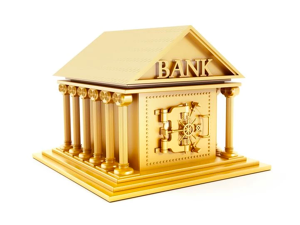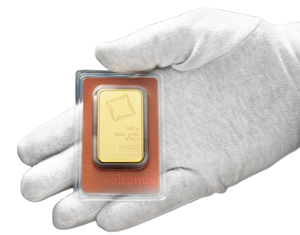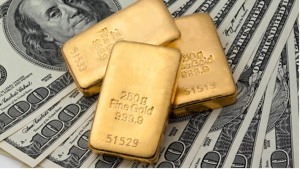Tavex uses cookies to ensure website functionality and improve your user experience. Collecting data from cookies helps us provide the best experience for you, keeps your account secure and allows us to personalise advert content. You can find out more in our cookie policy.
Please select what cookies you allow us to use
Cookies are small files of letters and digits downloaded and saved on your computer or another device (for instance, a mobile phone, a tablet) and saved in your browser while you visit a website. They can be used to track the pages you visit on the website, save the information you enter or remember your preferences such as language settings as long as you’re browsing the website.
| Cookie name | Cookie description | Cookie duration |
|---|---|---|
| tavex_cookie_consent | Stores cookie consent options selected | 60 weeks |
| tavex_customer | Tavex customer ID | 30 days |
| wp-wpml_current_language | Stores selected language | 1 day |
| AWSALB | AWS ALB sticky session cookie | 6 days |
| AWSALBCORS | AWS ALB sticky session cookie | 6 days |
| NO_CACHE | Used to disable page caching | 1 day |
| PHPSESSID | Identifier for PHP session | Session |
| latest_news | Helps to keep notifications relevant by storing the latest news shown | 29 days |
| latest_news_flash | Helps to keep notifications relevant by storing the latest news shown | 29 days |
| tavex_recently_viewed_products | List of recently viewed products | 1 day |
| tavex_compare_amount | Number of items in product comparison view | 1 day |
| Cookie name | Cookie description | Cookie duration |
|---|---|---|
| chart-widget-tab-*-*-* | Remembers last chart options (i.e currency, time period, etc) | 29 days |
| archive_layout | Stores selected product layout on category pages | 1 day |
| Cookie name | Cookie description | Cookie duration |
|---|---|---|
| cartstack.com-* | Used for tracking abandoned shopping carts | 1 year |
| _omappvp | Used by OptinMonster for determining new vs. returning visitors. Expires in 11 years | 11 years |
| _omappvs | Used by OptinMonster for determining when a new visitor becomes a returning visitor | Session |
| om* | Used by OptinMonster to track interactions with campaigns | Persistent |
| Cookie name | Cookie description | Cookie duration |
|---|---|---|
| _ga | Used to distinguish users | 2 years |
| _gid | Used to distinguish users | 24 hours |
| _ga_* | Used to persist session state | 2 years |
| _gac_* | Contains campaign related information | 90 days |
| _gat_gtag_* | Used to throttle request rate | 1 minute |
| _fbc | Facebook advertisement cookie | 2 years |
| _fbp | Facebook cookie for distinguishing unique users | 2 years |
Gold as a Currency (Money)

Gold, as a precious metal, has long been a vital component of the global monetary system. Around 550 BC, gold coins were first produced at the behest of King Croesus of Lydia, which is now in Turkey.
Gold has mesmerised humanity for millennia, serving as a symbol of wealth, power, and beauty. Beyond its allure, gold’s practical applications in trade and investment underscore its enduring value.
This article delves into the rich history of gold as currency, its characteristics that qualify it as money, its role in the modern economy, and prospects for its future.
History of Gold as Currency

Gold’s journey as a medium of exchange traces back to ancient civilisations. Egyptians, dating to 2600 BC, were among the first to fashion gold into coins, setting a precedent for its use as money.
Read more on the topic here: The Evolution of Silver and Gold as Currency
The concept of a gold standard emerged in the 19th century, establishing gold as the basis for currency valuation and international trade. However, the 20th century saw a gradual shift towards fiat currency (fiat money), where the value is not backed by physical commodities but by government decree.
Read more about The Gold Standard here.
The Characteristics of Gold as Money

Gold’s intrinsic qualities have cemented its status as an ideal form of money. Its durability ensures it doesn’t corrode or degrade, maintaining value over the long term.
Gold’s portability, due to its high value-to-weight ratio, facilitates ease of trade
Its divisibility allows it to be fashioned into smaller denominations, and its uniformity ensures that each unit is equivalent.
The limited supply of gold (amount of gold), resulting from its scarce occurrence in nature and the labor-intensive process of extraction, underpins its value. Lastly, its acceptability worldwide has been unquestioned for centuries.
Modern Use of Gold in the Economy

In the contemporary landscape, gold transcends its historical role as currency. It’s a sought-after investment, hedging against inflation and currency devaluation.
Central banks bolster their economic security by maintaining substantial gold reserves in their currency system. Global central banks purchased 229 tonnes of gold in the last quarter of the previous year.
They bought 1,037 tonnes of gold in total over the year, which is around 25% of the global gold market
Additionally, gold’s conductive properties have made it indispensable in electronics and other industries.
The Pros and Cons of Gold as Money

The advantages of gold include its historical stability, inherent value, and role as a hedge against economic uncertainty.
By linking the value of the currency to a physical object, gold stabilises the economy
This lowers the possibility of both hyperinflation and inflation.
Additionally, because the value of the currency is derived from a physical object, the gold standard promotes economic transparency. Financial decision-making is facilitated for both individuals and organisations as a result.
Furthermore, governments must exercise discipline under the gold standard because they are unable to print more money than their gold reserves can hold. This lowers the chance of overspending and promotes prudent financial practices.
However, gold as a currency has limitation. These limitations point to its volatility, the impracticalities of using physical gold in daily transactions, and the opportunity cost of holding a non-yielding asset.
The money supply is restricted by the gold standard, which may impede the expansion and advancement of the economy. Additionally, because central banks are unable to change interest rates or increase money printing in order to boost the economy during recessions, gold as money restricts the flexibility of monetary policy. Finally, in order to maintain the gold standard, a nation must maintain adequate gold reserves to support its currency. Developing nations or those with few natural resources may find this difficult.
The Future of Gold

The digital age has ushered in the concept of ‘digital gold’ through cryptocurrencies, which aim to blend gold’s tangible value with the efficiency of digital transactions. Despite the rise of digital currencies, gold continues to hold significant allure, especially in times of geopolitical and economic instability.
Read more on the subject here: Digital Gold vs Physical Gold: The Difference
Market watchers believe that gold is poised to rise to new heights when measured in all of the major currencies. Rather than gold rising, the real cause is the collapse of the prices of the currencies. Understanding this difference is essential to figuring out how the gold/currency relationship will develop in the future.
Key Takeaways
Gold’s enduring legacy as a form of currency and a symbol of wealth is a testament to its unique properties and the role it has played in human history. From ancient civilisations to modern economies, gold has been a constant presence, evolving in its applications yet remaining a stable foundation in times of economic uncertainty.
Despite the transition to fiat currencies (nations currencies) and the advent of digital currencies, gold continues to be a sought-after asset, prized for its scarcity, intrinsic value, and versatility. As we look to the future, the allure of gold, whether held in physical form or represented digitally, is unlikely to diminish.
It’s ability to serve as a hedge against inflation, a tool for diversification in investment portfolios, and its ongoing relevance in industry and technology, ensures that gold will remain an integral part of economic systems worldwide.
In a world of fleeting trends and digital transformation, the tangible value and timeless appeal of gold stand out, offering a bridge between the past and the future of currency and investment.

















